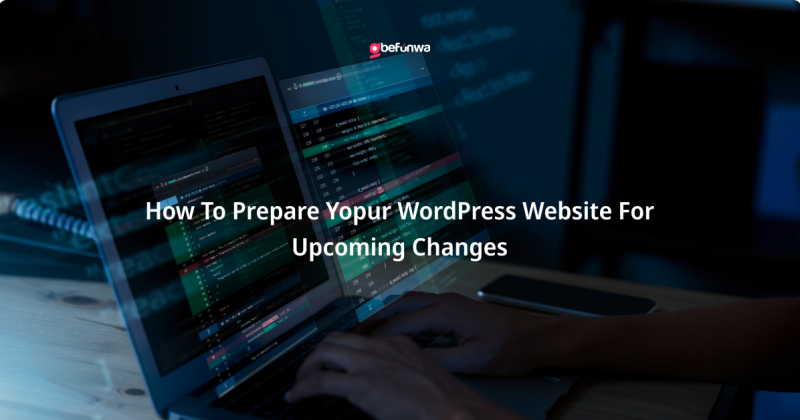
WordPress, being one of the most popular content management systems (CMS), continually evolves to meet the ever-growing demands of website owners and users alike. To ensure your WordPress website remains secure, optimized, and future-proof, it’s essential to prepare your WordPress website for updates. In this blog post, we’ll explore actionable steps to help you get ready for the next wave of updates and enhancements.
The first step in preparing for upcoming changes is to stay informed about WordPress updates, announcements, and best practices. Subscribe to official WordPress blogs, follow relevant industry news sources, and engage with the WordPress community through forums and social media. Being aware of what’s on the horizon will give you a head start in adapting to changes.
Before making any significant updates or changes to your WordPress website, ensure you have reliable backups in place. This safety net allows you to restore your site to a previous state in case anything goes wrong during the update process. Consider using a reputable backup plugin and schedule regular backups to keep your data secure.
One of the most critical aspects to prepare your WordPress website for updates is keeping your WordPress core, themes, and plugins up to date. Developers release updates to address security vulnerabilities, improve performance, and introduce new features. Regularly check for updates in your WordPress dashboard and apply them promptly. However, remember to take backups before making major updates, especially for themes and plugins, as some updates may cause compatibility issues.
Testing updates on a staging environment is a best practice to ensure your website functions correctly before implementing changes on the live site. Many hosting providers offer staging environments for WordPress websites. Clone your website to the staging environment and test core, theme, and plugin updates thoroughly. This allows you to identify and resolve any issues without impacting your live site’s performance.
As WordPress evolves, some themes and plugins may become incompatible with the latest updates. To prepare your WordPress website for updates, review the compatibility status of your themes and plugins. If a particular theme or plugin is no longer supported or hasn’t been updated in a while, consider finding alternatives or seeking assistance from a developer to ensure compatibility.
Page speed and performance are critical factors for user experience and search engine rankings. Before upcoming changes, take steps to optimize your website’s performance. This includes optimizing images, leveraging browser caching, enabling a content delivery network (CDN), and implementing lazy loading for images and scripts. Tools like Google PageSpeed Insights and GTmetrix can help you identify performance bottlenecks.
WordPress relies on PHP, a server-side scripting language, to function. Ensuring your website is running on the latest PHP version is crucial for security and performance. Check with your hosting provider to see if you can upgrade to a more recent PHP version. Newer PHP versions offer improved speed and security features that benefit your WordPress website.
Security should be a top priority when preparing for upcoming changes. Review and enhance your website’s security measures by:
A content audit helps you assess the quality and relevance of your existing content. Remove outdated or irrelevant posts, update content that needs refreshing, and ensure that all your pages are mobile-responsive. A well-organized and up-to-date website enhances user experience and SEO performance.
If upcoming changes may affect your website’s functionality or user experience, plan how you’ll communicate these changes to your audience. Transparency and clear communication can minimize confusion and ensure a smooth transition for your visitors.
Preparing your WordPress website for upcoming changes is essential to maintain its performance, security, and relevance. Taking these proactive steps ensures that your WordPress website remains a reliable and effective online presence for years to come.
Deborah Oludimu is an experienced content writer with 3+ years of experience. She is skilled in research, writing, and editing to produce high-quality, engaging content across industries. Deborah is passionate about creating content that informs and inspires
© 2025 GBEFUNWA.COM. All rights reserved.
The WordPress® trademarks are the intellectual property of the WordPress Foundation, and the Woo® and WooCommerce® trademarks are the intellectual property of WooCommerce, Inc. Uses of the WordPress®, Woo®, and WooCommerce® names in this website are for identification purposes only and do not imply an endorsement by WordPress Foundation or WooCommerce, Inc. gbefunwa is not endorsed or owned by, or affiliated with, the WordPress Foundation or WooCommerce, Inc.